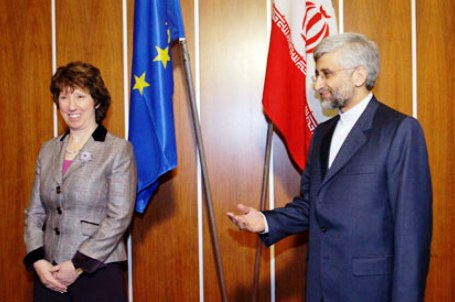The Promising Nuclear Talks

Last Tuesday, Iran’s nuclear negotiator Saeed Jalili sent a letter to EU foreign policy chief, Catherine Ashton, informing her that Iran would be ready to hold talks on a variety of issues including Iran’s nuclear issue. Jalili’s letter was in response to the letter sent to him by Ashton in October 2011 in which, while reiterating Iran’s right to peaceful nuclear technology, she expressed the willingness of 5+1 countries to work with Iran towards an agreement that “restores international confidence in the exclusively peaceful nature of Iran’s nuclear program.” Jalili emphasized that “our talks for cooperation based on step-by step principles and reciprocity on Iran’s nuclear issue could be commenced.”
The West reacted cautiously optimistic to Iran’s new move. After her meeting in Washington with Ashton, U.S. Secretary of State Hillary Clinton, said “we think this is an important step, and we welcome the letter.” Ashton added “I’m cautious and I’m optimistic at the same time for this.” As usual, the Israeli authorities ignored this positive atmosphere and again called for stricter sanctions against Iran.
Since the last round of talks between Iran and the 5+1 countries in Istanbul in January 2011-- which did not succeed in bridging the gap between the positions of both sides-- there have been attempts to revive the talks, the most important of which was the Russian plan introduced last autumn. Iran reacted positively to the proposal while the Western counties were generally silent on it. The Russian plan envisages a step-by-step approach towards solving the Iranian nuclear issue. Despite the fact that the plan needs further elaboration and clarification, it can be considered as a good basis for the start of the talks. The implementation of every phase of the plan by both sides will provide the necessary confidence needed to tackle the complex issues down the road.
The readiness of both sides to talk after a lull of more than one year is a welcoming development. The next round of talks, the time and venue of which are to be determined, can provide a good degree of hope for resolving this sensitive issue. Iran’s achievements in the area of peaceful nuclear technology cannot and should not be ignored. Iran cannot be expected to forgo its accomplishments sanctioned by the NPT.

